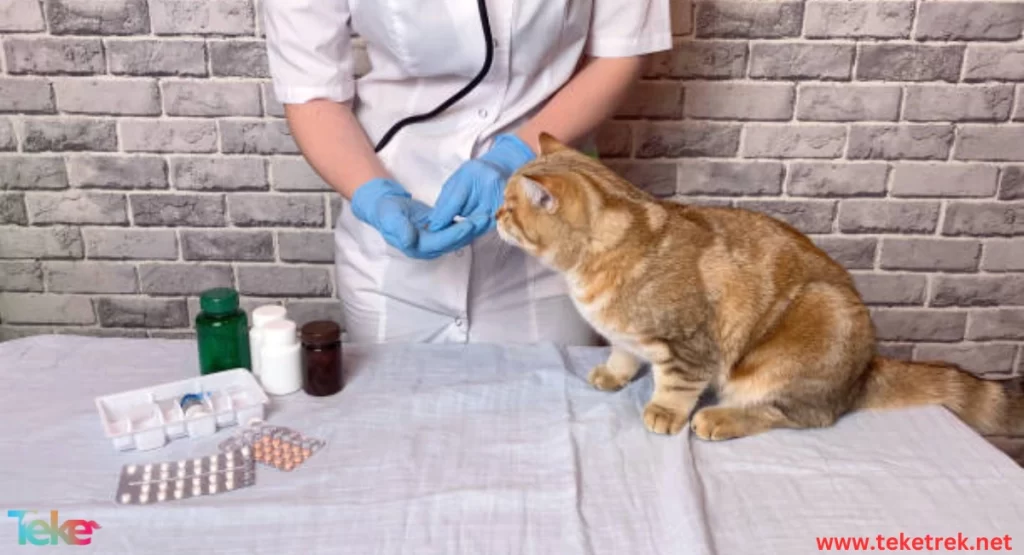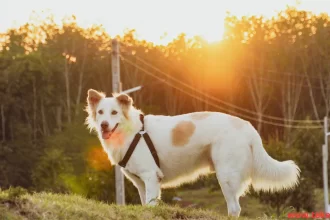Knowing the winter diseases that affect dogs and cats is one of the most prominent issues that breeders of these creatures pay special attention to, especially since the winter season brings with it the harsh climate and extreme cold, which have a clear effect. We see respiratory diseases and other diseases that explain winter sensitivity in animals.
It may happen that you see your pet weak and emaciated in the winter more than at any other time of the year. This lethargy may be caused by the cold waves to which it is exposed, so it is important to look at the most prominent diseases that may affect it in this season to know how to protect it from them.
What are winter diseases in pets? What are skin problems in winter? What is the appropriate nutrition for cats and dogs in winter? What are the ways to keep dogs and cats warm in winter? We will answer these questions and many others in the following lines. Follow along with us.
The effect of winter on the health of dogs and cats:
The effect of cold on the health of animals is one of the things that is recognized and indisputable, especially those animals that live outside for long periods of time, as we notice that they have a severe drop in body temperature, and dry fur and skin caused by exposure to cold air, which leads to injury. With itching and irritation, in addition to her tendency to eat more food, the main reason for this is the decrease in her body temperature and thus her need for additional energy.
In this context, it is necessary to point out the changes that occur in their bodies during the winter with the aim of adapting to the cold, most notably the increase that we observe in the density of their fur to provide them with a factor of protection from the cold, and their gaining more weight as a result of eating more food and the changes that occur in metabolism. And physical activity, in addition to the tendency of these cute creatures to sleep in warm places and their preference to stay indoors for the longest possible period of time.

Common diseases that affect dogs and cats in winter:
Many pet owners, such as cats and dogs, wonder about winter diseases that affect dogs and cats, so they can follow some measures to prevent their occurrence. Therefore, we will put in your hands a list that includes the most prominent of these diseases and the symptoms that distinguish them from others:
Colds in dogs and cats: which is one of the most common diseases that may affect pets during the winter as a result of low temperatures, as its main symptoms are a slight cough, runny nose, or lethargy and unwillingness to move.
Respiratory system infection: Respiratory system infections in pets are common diseases in winter that are caused by bacteria, insects or fungi, and their symptoms are coughing, irritation and vomiting.
Joint pain in dogs and cats: The effect of cold on the joints, especially in older animals, is one of the most common diseases, as the pain increases when exposed to cold weather, and its symptoms are clearly manifested in difficulty walking after waking up from sleep, the tendency to sleep more, difficulty in Jumping, in addition to many other symptoms.
Skin diseases: The most prominent of which are skin irritations, such as skin cracks that occur due to dryness or cold. Therefore, it is necessary to take care of drying their fur well to protect it from dirt and moisture that lead to skin problems.
Kennel cough: Or as it is also known as canine infectious respiratory disease, which is characterized by the appearance of a dry and severe cough or vomiting as a result of pressure in the trachea, or after exertion, and fever is also one of its symptoms in some cases.
Bronchitis in pets: which may occur as a result of exposure to a severe cold wave, and whose symptoms appear in the form of difficulty breathing, persistent coughing, fainting, blue gums, and lethargy, as it is one of the most prominent winter diseases that affect dogs and cats.
Lung diseases in dogs: One of the common winter diseases for dogs, which occur as a result of cold and high humidity, the most prominent of which are: inflammation of the lungs, bronchitis, acute respiratory infection, and respiratory infection caused by viruses. Its symptoms vary between the following: (cough, difficulty breathing (vomiting, weight loss, laryngitis, weakness.)
Symptoms to watch out for when pets become ill:
Below we will learn about the symptoms of winter diseases for animals and the signs that indicate that your dog or cat is sick:
Coughing, wheezing, and nasal discharge all indicate a respiratory problem.
Diarrhea or vomiting are symptoms that may be life-threatening and occur as a result of a viral or bacterial infection, or as a result of a change in diet.
A noticeable increase or decrease in the amount of water he drinks is one of the symptoms of winter diseases that affect dogs and cats.
Pale gums indicate health problems such as kidney disease, anemia, and parasites.
Behavioral changes appear, such as lethargy or increased aggression.
Rapid weight gain or loss, which is a symptom of a cold in cats and dogs.
You may be wondering, when should you consult a vet? Therefore, we will explain to you some points that require veterinarian intervention, which are among the most important steps in treating winter diseases that affect dogs and cats:
Inability to breathe well.
Avoid eating food for a long period of time, as loss of appetite is one of the signs that these animals are suffering from serious diseases.
Lethargy and inability to move normally.
Difficulty or blood in the urine.
The appearance of abnormal masses in the body.
Methods of prevention and care in the winter:
Below we will give you tips to protect pets from the cold, especially cats and dogs, as follows:
Providing a warm and comfortable environment, as this is one of the basic needs that must be provided for the pet, as this includes choosing a suitable place away from cold air currents, allocating a warm corner that allows this cute creature to relax and rest, in addition to supporting it with warm and comfortable blankets.
The importance of proper nutrition to enhance immunity and help the pet adapt to harsh climatic conditions. This is evident in the necessity of providing foods rich in calories that will compensate for the energy lost in the cold. Great thought must be given to appropriate nutrition for dogs and cats in winter.
Use winter clothing for pets, such as coats, jackets, and special shoes that protect their feet, as keeping cats and dogs warm is one of the most important things that must be taken care of on cold days.
Avoid exposing animals to cold or wet places. How to avoid getting wet, which results in various skin problems, such as: dry skin in winter in cats.
Preventing winter diseases for dogs by providing good nutrition, maintaining physical activity, and preparing a warm, dry place for dogs to settle in.

Available treatments for winter diseases:
It is very necessary to provide winter care for pets, which protects them from winter diseases that affect dogs and cats, so we must point out the most prominent of these treatments:
Common medications for treating colds and respiratory infections, in addition to vaccinations for dogs and cats for the winter.
Home care that helps relieve symptoms.
Analgesic medications that relieve pain resulting from ligament and muscle diseases.
Antiviral and antibacterial medications when suffering from one of the types of infections.
Treating colds in dogs by providing comfort, warmth, and medical care if they persist.
In conclusion of our talk about winter diseases that affect dogs and cats, we find that it is very necessary to provide great care for pets during the winter, and to work to protect them from exposure to these diseases and any other negative effects resulting from low temperatures in this season, and it is also important to visit Visit your veterinarian regularly, especially when any unusual symptoms appear





